A Prominent privately owned radio broadcasting FM station in Calabar, Cross River State, in the early hours of today, engaged me as the chief speaker in a live public conversation on the recent sad incident of the killing of some soldiers in Delta State.
In the course of that one hour live programme which allowed members of the listening public to contribute their positions, something emerged which is the yawning gaps between Civilians and the military in Nigeria.
Join our WhatsApp ChannelThe majority of those who called in, focused exclusively on the reason why government rather than deploy police operatives to the warring communities in Delta State, chose to send armed soldiers.
Some other contributors, and they were obviously so many, expressed shock that the Soldiers who got killed were on a peacekeeping mission when in their assessment, there is no war situation in Delta State. Most of those who expressed that viewpoint stated that communal fights can’t qualify to be termed as such a war situation that could necessitate the involvement of the military in that botched peacekeeping initiative.
What all of these pessimistic opinions of the members of the public showed, is the clear absence of any sort of knowledge regarding the necessity for sending soldiers on Internal Security Operations, especially in situations whereby those charged with providing security in Nigeria decide that the police can’t cope with such a volatile problem.
READ ALSO: Killers Of Soldiers In Delta Won’t Go Unpunished, Tinubu Vows
Also, most Nigerians have the impression that since the military are trained to kill, they are unsuitable for such assignments as embarking on peacekeeping missions.
What the aforementioned perception further demonstrated is the clear absence of any public knowledge on the essence of rules of engagement.
A lot of Nigerians do not know whatever it is that soldiers are expected to observe as part of their Internal Security Operational rules of engagement. The military hierarchy in Nigeria often do not invest a lot of resources and time to educate members of the public on the components of the rules of engagement. Some military chiefs even think that it is anathema for any kind of publication for the reading benefits of members of the public to be made by the military authority on the rules of engagement governing military operatives during Internal Security Operations in Nigeria. I once confronted a Major General who was the chief of civil military operations of the Army to inquire why the rules of engagement haven’t been publicised in the official website of the Army. He looked at me in awe and loudly rejected such an audacious request and stated that the civilians do not need to know what the rules of engagement are. This to me sounded grotesque and unintelligent, to be very honest. This is because, a simple Google search on the rules of engagement for the military, would bring out thousands of materials posted by the Pentagon in the USA. So, why is the military in Nigeria afraid of educating Nigerians on their obligations under the laws of Nigeria whenever they are to embark on internal security operations? After all, these soldiers are first and foremost persons born into civilian population and are basically trained to protect the people and the territorial integrity of Nigeria.
The truth is that if most Nigerians are made aware of the obligations of soldiers who embark on Internal Security Operations, there will be a sharp reduction in unnecessary mutual suspicions that may result in clashes between the civilians who are to be protected by the soldiers and the soldiers who are sent to protect civilians. Most ordinary Nigerians who encounter the military during Internal Security Operations are often suspicious of the objective for which such internal security operations are initiated. The truth is that knowledge is power and it behoves on the military authority to educate the people of Nigeria about every aspect of their legal obligations when embarking on internal security duties amongst the civil populace.
Specifically, section 217 (2) (c) of the 1999 Constitution and Section (8) (1) and (3) of the Armed Forces Act, Laws of the Federation of Nigeria, (LFN) 2004 provide code of conduct and rules of engagement for the armed forces in internal security.
For instance, no officer or soldier must be found aiding or abetting any act of arson, vandalism or unprofessional conduct; and troops are duty bound to intervene in any situation to avoid a breakdown in peace, stability or law and order of an area where they are deployed.
Section 217 (2) (c) of the 1999 Constitution (as amended) provides that Nigeria’s armed forces shall suppress insurrection and act in aid of civil authority to restore order when called upon to do so by the President, Commander-in-Chief reinforced by Sect (8) (1) and (3) of the Armed Forces Act, Laws of the Federation of Nigeria, (LFN) 2004, it stressed that this presupposes that troops have to use necessary force to quell crisis resulting in deaths, injury and damages to properties.
Other highlights of the ROE include:
The principle of minimum force and proportionality must be applied at all times; whenever operational situation permits, every reasonable effort shall be made to control the situation through measures short of using force, including personal contact and negotiations; the use of lethal force shall only be resorted to if all other means to control the situation have failed or in case of unexpected attack or suspected Improvised Explosive Device (IED) attack during which a delay could lead to loss of life or serious injury to personnel; and that any force applied must be limited in its intensity and duration; it must also be commensurate with the level of threat posed.
Force shall be used only when absolutely necessary to achieve an immediate aim; the decision to open fire shall be made only on orders and under the control of on-scene commander, unless there is insufficient time to obtain such order. Fire can however be opened if the life of a soldier, any law-abiding member of the public and/or property of which it is our duty to protect is in grave danger; fire must be aimed and controlled. Indiscriminate firing is not permitted.
Fire may be opened to forcefully stop any vehicle that fails to stop at a checkpoint or road block when ordered to stop for search; automatic fire will only be opened as a last resort; avoid collateral damage; after fire has ceased, render medical assistance and record details of incident both in writing and using audio/visual equipment whether or not casualty has been recorded; and whenever in doubt, seek clarification from higher headquarters.
Killing Of Soldiers In Delta: Matters Arising
Following the killing of troops of the Nigerian Army deployed for a peacekeeping mission to two warring communities in Bomadi LGA of Delta State, including the commanding officer, two majors, one captain, and 12 soldiers, the Chief of Defence Staff, General CG Musa, has ordered the immediate arrest and investigation of all those involved. What the Defence Chief hasn’t acknowledged is the slow nature of dialogues going on between civilians and the military. There is very little by way of interfaces and interactions between civilians and the military that have gone on since these current set of Chief of Defence Staff and service chiefs were appointed. The era of Lieutenant General Tukur Yusuf Buratai was the glorious era of high conversations between the military and the civilians. May be these sets of military chiefs should call on General Buratai to help them initiate such interventions.
As the Director, Defence Information, Brigadier General Tukur Gusau, confirmed the killing of the military personnel on Saturday. He nevertheless made no effort to convince the civilians on why they should support the military to achieve a holistic security objective during any of the internal security operations.
But the defence spokesman said: “The troops of 181 Amphibious Batallion, Bomadi Local Government Area of Delta State, while on a peace mission to Okuoma community in Bomadi LGA of Delta State were surrounded by some community youths and killed on Thursday, March 14, 2024.
“The unfortunate incident occurred when the troops responded to a distress call after the communal crisis between the Okuama and Okoloba communities, both in Delta State.
“The reinforcement team led by the commanding officer was also attacked, leading to the deaths of the commanding officer, two majors, one captain, and 12 soldiers.
“The Chief of Defence Staff (CDS), General Christopher Gwabin Musa, has directed the immediate investigation and arrest of those involved in the heinous crime.”
But what is lacking in the media statement of the Defence Headquarters is the important place of civil military affairs.
From a brief research, we learnt that a Civil–military relation describes the relationship between military organisations and civil society, military organisations and other government bureaucracies, and leaders and the military.
The scholars stated that CMR incorporates a diverse, often normative field, which moves within and across management, social science and policy scales. More narrowly, it describes the relationship between the civil authority of a given society and its military authority.
“The goal of any state is to harness military professional power to serve vital national security interests, while guarding against the misuse of power that can threaten the well-being of its people.” Studies of civil-military relations often rest on a normative assumption that it is preferable to have the ultimate responsibility for a country’s strategic decision-making to lie in the hands of the civilian political leadership (i.e. civilian control of the military) rather than a military (a military dictatorship).
Studies show that while there are challenges to establishing civil-military relations, there are also methods to overcome them as we have learned through our approach to community engagement in the Northeast, so informed a study of how successful civil military affairs has achieved in the troubled North East.
The study group stated that engagement with conflict-affected communities can be challenging, especially in areas where there is a history of conflict or mistrust between the military and civilians. Some of the challenges include:
They affirmed that a lack of trust could derail the goal of achieving a holistic civil military dialogues because building trust between the security forces and the community can be difficult, especially in areas where the military is seen as an occupying force or where the security forces are the perpetrators of harm to civilians.
Cultural barriers: Understanding local culture and customs is essential for effective community engagement. However, cultural differences including language can create barriers to communication and collaboration. This can be the case during foreign interventions of military forces as well as when military officers are deployed to different parts of their own country where culture and customs are different from their own.
Security concerns: In conflict-affected areas, security can be a major concern for both the military and civilians. This can make it difficult to engage with the community and build relationships. For instance, this might be the case in time of intense hostilities during which military actors are considered legitimate targets for the other warring party(ies). Bringing civilians and military together may result inadvertently in harm to the communities.
The misperception that community engagement takes a lot of resources: Some might think that engaging with the community requires too many resources, including personnel, time, and funding. However, the risks that may arise from not engaging with communities far outweigh the costs and resources.
From the above, we can now see that so much can be achieved if there is harmony between civilians and the military for the betterment of their society. However, since President Tinubu appointed the set of service chiefs, not much is happening in the area of enhancing civil military affairs.
When they were newly appointed, these service chiefs promised everything under the sun to respect human rights while discharging their constitutional mandates.
This is as they promised to rid the country of the insecurity bedevilling it.
The Chief of Defence Staff, Major General Christopher Musa, stated this on behalf of other service chiefs when they visited the Ministry of Defence in Abuja on Monday.
However, Musa said the Armed forces under his watch would go about their duties professionally with respect for human rights.
He urged the citizens to see the Armed forces as theirs.
Musa said, “To the civilians, the Armed forces are for you and we will do whatever it takes to ensure Nigeria thrives.
“We are committed to what we have been tasked to do. While doing this, we are going to respect human rights. We can assure you that we are going to be very professional in our approach.
“We assure you all that we are here and we are committed to ensuring that we achieve the mandate of the president.”
He said: “We want Nigeria to be peaceful. We grew up when Nigeria was peaceful and we know what it looks like and we want to ensure that our children will be proud of the country during our time.”
But if you ask me, I will say that the current set of service chiefs have failed to support vibrant civil military dialogues and this is the genesis of the yawning gaps in Civil Military relation in the Country at the moment.
Emmanuel Onwubiko is head of the Human Rights Writers Association of Nigeria and was National Commissioner of the National Human Rights Commission of Nigeria.

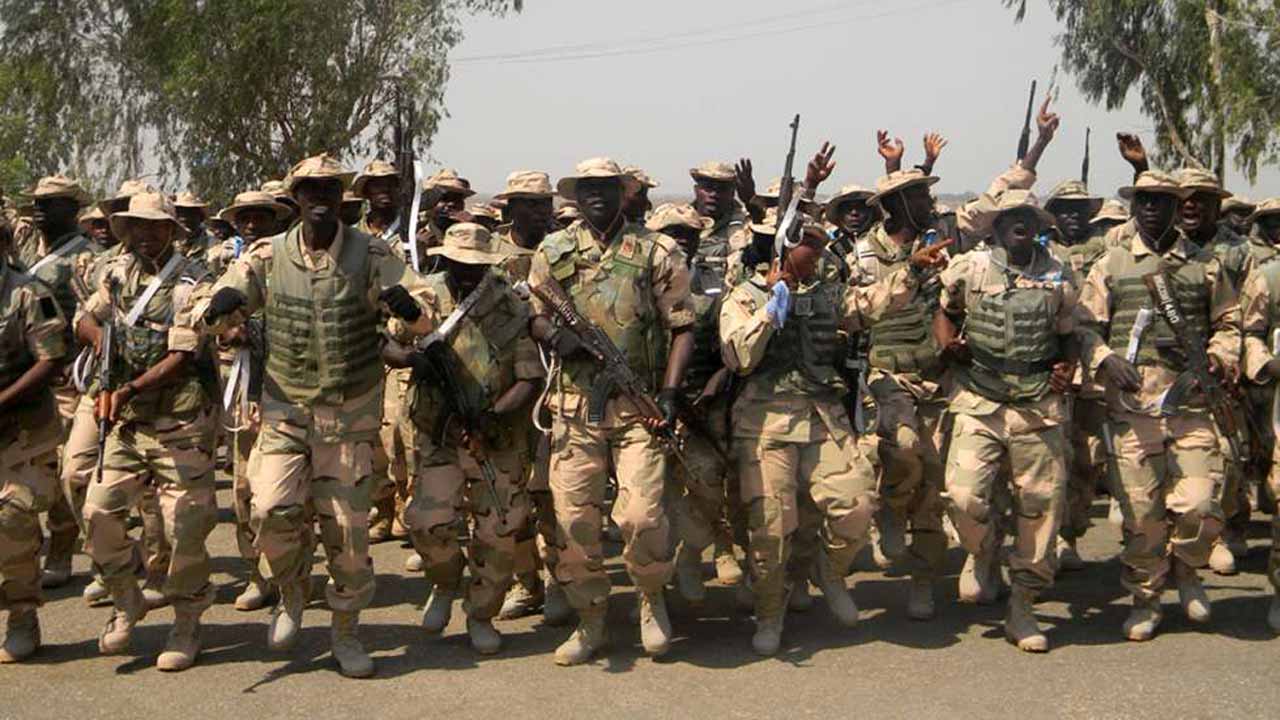


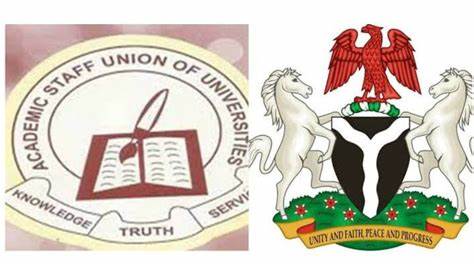
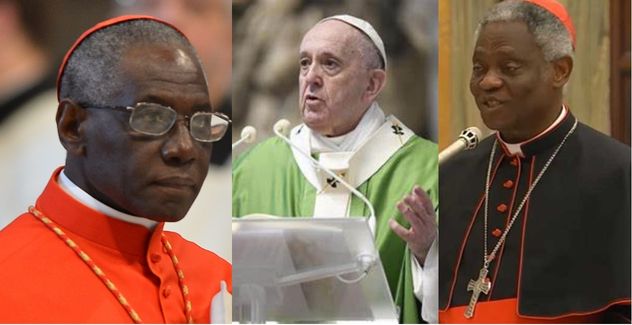
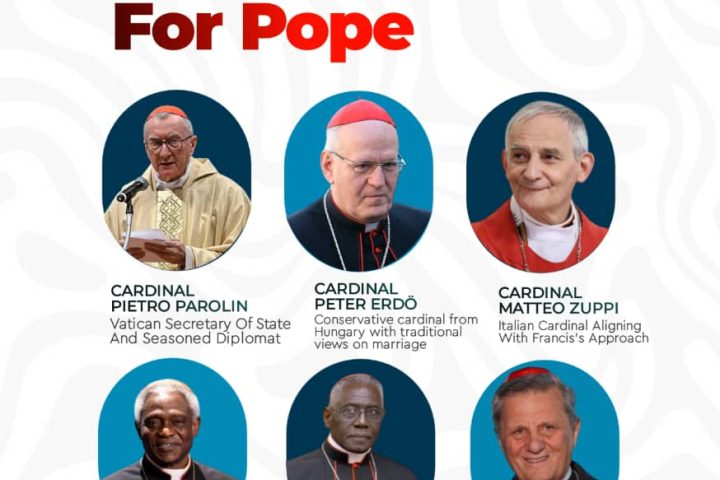









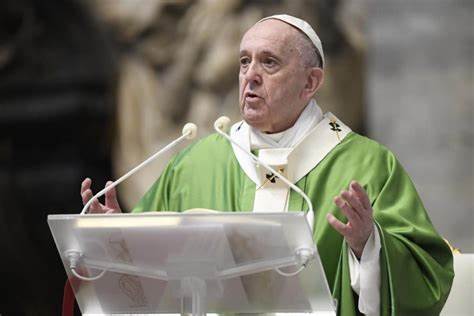
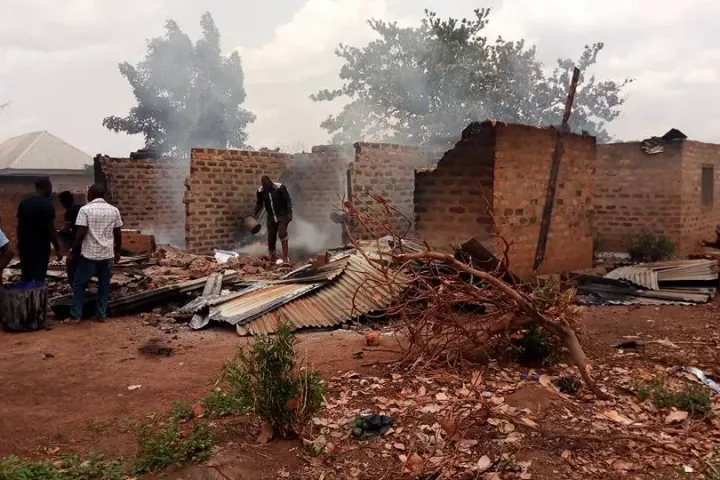
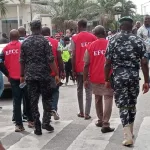
Follow Us